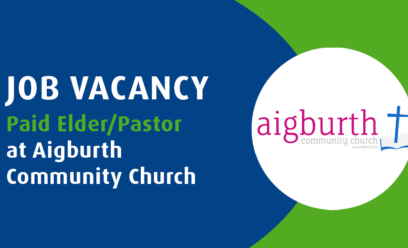Navigating the next steps

Barring a major deterioration in circumstances full release from lockdown will go ahead on 19 July in England. This will end the legal requirement for social distancing and mask wearing. The government have also confirmed that the guidance for churches that has effectively banned congregational singing will end. They will also be free to celebrate communion and baptisms in the way we used to.
We praise God that in his mercy, the pandemic is becoming less severe in this country due to vaccinations and better treatments. We also give thanks that we will be allowed to meet face-to-face without being obliged to wear masks. And we will not have to stand apart from other households, and will at last be able to sing together.
Churches may therefore wish to simply return to normal on Sunday 25 July, but we need to reflect on how we respond in a godly way to the unfolding situation; there is a need for careful thought and a sensitive approach to this new situation.
Fatality rates are now less than a tenth of what they were last year, the numbers being roughly equivalent to seasonal flu. But with infection numbers increasing, Covid still represents a significant risk to health. More importantly, members of our church congregations – like the population at large – vary greatly in their understanding and evaluating the state of the pandemic, and in their appetite for a return to normality. Some are risk averse; they would prefer to stay at home for now. At the other end of the spectrum are those white-knuckle risk-takers who never wanted lockdown in the first place. At times over the these past 15 months this divergence of views (fear on the one hand, frustration on the other) has caused tension and there is a danger that this becomes exacerbated as we move into a period in which personal responsibility (and choice) determines behaviour rather than government diktat.
In wider society the battle lines are already being drawn regarding one area of controversy – mask wearing – with both champions and opponents of face coverings claiming the moral high ground. Throughout the pandemic we have encouraged Christians to stay within the boundaries set by laws and guidance, unless their conscience dictated that they had to break the law rather than disobey God.
Now it seems that after 19 July the responsibility will lie with each individual to assess the risk involved in where to go, whom to meet and whether to wear a mask or not. But churches, as community organisations, have a duty of care to those who attend their meetings, so they will need think carefully about the risks involved as they return to some sort of normal activity.
This may mean that many of our churches continue with some measures to minimise the risk of infection such as pre-entry checks, hygiene protocols, good ventilation and possibly some form of social distancing. More controversially, some may decide to continue mask-wearing and the ban on singing as a relatively small sacrifice for the sake of others.
However, I think we should consider very carefully before imposing restrictions that the government no longer mandates on key areas of church fellowship and worship. Clearly, the government have decided that congregational singing is now acceptable and social distancing is no longer essential, so not to reflect these changes in our meetings seems to me to be giving an undue priority to our physical health over our spiritual well-being. We should place a very high priority on meeting together as a whole church to hear God’s word, to worship him (including with song) and to enjoy being able to freely communicate with one other.
However, those who do return to ‘business as usual’ must be sensitive and loving to the whole congregation – including those who have a different perspective: Some of our Christian brothers and sisters will want to hug everyone from week one (maybe some never really stopped doing it!), whereas others will continue to be fearful of even standing near someone else or breathing the same air.
So whatever you decide will be the practice in your church, the journey is as important as the destination. We will need to gently lead one another through this – to bear with one another and carry one another’s burdens.
This starts with good communication of what we are doing and why. We need to listen to people’s concerns and seek to answer and, if possible, accommodate them. This might mean slowing the pace of return – for example, gradually increasing the numbers allowed to meet over the course of a few weeks; maybe retaining some hygiene measures (such as mask wearing) or providing areas where people can still sit socially distanced.
For our spiritual health, I do not believe it is right to delay a return to normal church, but we must recognise that Covid-19 has been extremely challenging on many levels, not least for relationships between Christians. And so as we consider the pace of re-opening, let us remember Paul’s words in 1 Corinthians 10:23-24 when he says that, “All things are lawful”, but not all things are helpful; “All things are lawful”, but not all things build up. So,
“No one should seek their own good, but the good of others.”
Graham Nicholls in Director of Affinity
Picture credit: “open road” by sammydavisdog is licensed under CC BY 2.0
Related articles
Stay connected with our monthly update
Sign up to receive the latest news from Affinity and our members, delivered straight to your inbox once a month.



